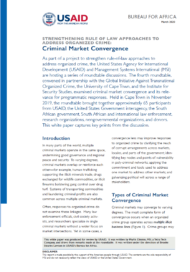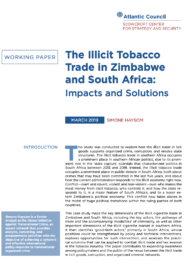Posted on 20 Dec 2009
Today, organized transnational criminality is more professional than ever before, and follows the trail of globalization. Much like other business activities, illegal activities are based on good mutual relations on both national and international levels and rely on organized financial and informational supplies. The impact of globalization on growing transnational criminality means that an increasing number of countries and people are linked in a chain and affected by its consequences. The borders of nation-states constitute rather insignificant impediments to criminal networks, as the production, transit, and consumption of drugs are increasingly integrated in multifarious networks, characterized by economic gain, violence, and corruption. Since Europe is one of the world’s most profitable markets for narcotics, criminal networks have expanded and positioned themselves in the region. Moreover, legal economic activities are also being tainted through the use of Western banks in money laundering operations by investing in real estate and stocks. The concurrent development of transnational organized crime has not gone unnoticed. Both law enforcement agencies and the media have addressed some of the problems caused by the growth of transnational crime and trafficking of narcotics.



